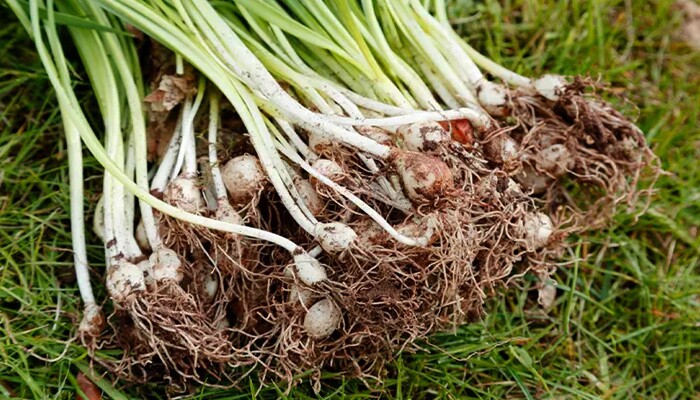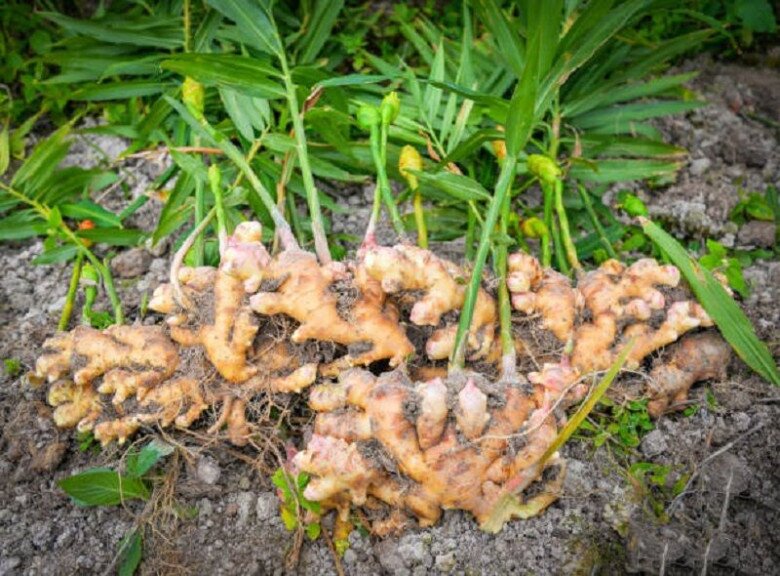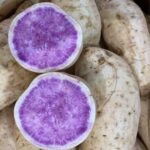According to the Ministry of Health, to prevent illness, people should consume well-cooked food and practice good personal and household hygiene. Additionally, boosting your body’s immune system by consuming vegetables and fruits rich in vitamins, minerals, and antioxidants is essential. Two such powerful ingredients are ginger and garlic chives, widely cultivated and considered “miraculous cures” in Vietnam.
Garlic Chives
In traditional Chinese medicine, garlic chives have a spicy taste, a pungent aroma, and a warming effect. They are believed to warm the spleen and stomach, expel phlegm, relieve coughs, induce sweating, promote diuresis, kill bacteria, and detoxify the body. They are also used to treat colds, insect bites, and more.
Here are some remedies using garlic chives:

Garlic chives have numerous health benefits but are underappreciated in daily diets.
Treating Common Colds: Crush garlic chives, mix with warm water, and drink the mixture while applying it externally to affected areas.
Snake Bites and Insect Stings: Chew and swallow seven garlic chives, then apply the residue to the affected area as first aid before seeking further treatment.
Preventing Colds: After being caught in the rain or walking through muddy areas, chew a handful of garlic chives and wash them down with a cup of clear alcohol.
Relieving Weather-Related Ailments (Heat or Cold, Headaches, and Nasal Congestion): Cook rice porridge and add 20 crushed garlic chives to a pan with a spoonful of vinegar while still hot.
Treating Abdominal Distension and Urinary Problems in Children: Crush and heat garlic chives, then apply them to the lower abdomen (bladder area). For children with urinary problems, crush 4g of garlic chives, steam them with a small cup of breast milk, and give the warm mixture to the child to drink (discard the residue).
Whooping Cough: Crush the bulbs or leaves of garlic chives, mix with rock sugar, and steam with rice or cook in a double boiler. Drink the strained liquid.
Treating Locked Jaw: Crush 10g of garlic chives and extract the juice. Use a chicken feather to apply the juice to the throat to induce vomiting and expel phlegm.
Food Poisoning and Lead Poisoning: Crush 6g of garlic chives, mix with alcohol, and drink the mixture.
Cholera: Crush 100g of garlic chives, heat them up, and apply them to the navel. Replace with a new batch when it cools down, repeating this process several times a day for effective results.
Insects in the Ear: Drip garlic chive juice into the ear, and the insect will crawl out.
Nasal Congestion and Breathing Difficulties: Boil a small amount of garlic chives and drink the liquid two to three times a day for a few days until symptoms subside.
Intestinal Worms: Crush 80g of garlic chives, extract the juice, and mix it with 40ml of sesame oil or peanut oil. Consume this mixture.
Treating Boils: Roast garlic chives, crush them, and apply the paste to the boils while still hot.
Treating Stroke: Immediately after a stroke, crush a handful of garlic chives, mix with a child’s urine, and drink the strained liquid.
Relieving Neuralgia: Use 100g of fresh garlic chives, 2 ginger roots, and 2 pieces of white radish. Crush them, heat the mixture, and apply it to the affected area.
Treating Arthritis: Use 60g of garlic chives and 15g of old ginger. Crush them, add white wine, mix well, and apply the paste to the affected area.
Treating Numbness in Hands and Feet: Use 62g of garlic chives, 16g of ginger, and 3g of chili peppers. Boil this mixture and drink it twice a day.
However, when using garlic chives, avoid combining them with honey, as it may cause nausea and dizziness. Also, do not use them with other herbs like Chinese thorowax root, cooked rehmannia root, or raw rehmannia root.
Ginger
According to Dr. Huynh Tan Vu, Head of the Day Treatment Unit at Ho Chi Minh City University Medical Center, ginger is a common spice in Vietnamese cuisine, used in fresh, dried, powdered, or juiced forms.
In traditional medicine, ginger has a spicy taste and a warming effect. It enters the Lung, Spleen, and Stomach meridians and is known for its ability to disperse cold and release the exterior, warm the stomach, stop vomiting, promote fluid production, relieve coughs, stop nausea, resolve phlegm, and detoxify. “The distinctive spicy flavor and warming nature of ginger make it a popular ingredient in both culinary and medicinal applications,” Dr. Vu shared.

Ginger is also effective in preventing various health issues during the storm and flood season.
Dr. Vu explained that consuming fresh ginger helps dilate capillaries, promotes perspiration, and warms the body from within. This approach not only improves blood circulation but also combats respiratory syncytial virus and prevents respiratory-related illnesses. Folk medicine also employs ginger for coining therapy to treat colds.
Roasted ginger is used to treat abdominal pain, stomach cold, and diarrhea.
Dried or toasted ginger is effective for abdominal pain, indigestion, abdominal distension, cholera, cold hands and feet, small pulse, dampness and phlegm, wheezing, and rheumatism. The typical dosage is 4-20g per day in the form of a decoction or powder. It is often used in combination with other herbs.
Digestive Problems: During the storm and flood season, many people experience stomach cold and indigestion. According to Dr. Vu, fresh ginger can help treat digestive issues such as bloating, indigestion, belching, acid reflux, and nausea. It also stimulates appetite. Additionally, ginger can be used as a spice in cooking or consumed as ginger tea or ginger candy. “Regular consumption of fresh ginger in appropriate amounts can promote digestion, enhance the absorption of minerals and nutrients, and maintain a healthy digestive system,” Dr. Vu advised.
Back and Neck Pain due to Cold: Ginger-infused alcohol can be used as a massage oil to relax muscles. Alternatively, you can apply a hot compress to the neck and shoulders using roasted ginger mixed with salt crystals.
Joint Pain: Soak your hands, feet, or body in herbal water containing fresh ginger. Alternatively, use roasted ginger mixed with salt crystals as a hot compress on the affected area.
Precautions when using ginger:
– Do not consume more than 5g of ginger per day.
– Avoid ginger if you are about to undergo surgery or have recently had surgery.
– Do not use ginger if you have nosebleeds, gum bleeding, heavy menstrual bleeding, or any other type of bleeding.
– Do not use ginger if you suffer from excessive sweating or sunstroke.
– When applying ginger to the skin, perform a patch test on a small area first. Keep ginger on the skin for a short time, as it may cause irritation in sensitive individuals.
– Clean the ginger’s skin before use, and do not peel it, as the skin has valuable medicinal properties.





































